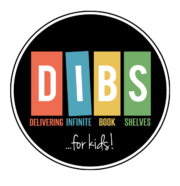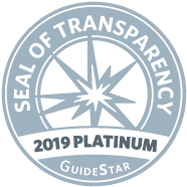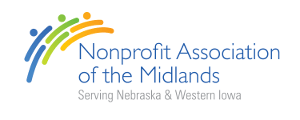Literacy & civic engagement: Preparing kids for the role they can play in society
Politics. It’s the last thing many people want to talk about, especially after a divisive election. To be clear, we’re going to spare you from another think piece on where the country is headed. Instead we’re digging into the links between literacy, civic engagement and kids. How can our communities better involve youth in issues and create opportunities for them to develop solutions?
Kids are small, may not quite have stellar vocabularies, heck, they might still need help opening their milk cartons during lunch at school – but they are not helpless. If we can show them how much power they hold, kids can do some pretty cool things. Just watch this 2nd grade class take ownership of their reading.
And ask Adam Morfeld, Senator in Lincoln, Nebraska and the founder of Nebraskans for Civic Reform (NCR), a nonprofit dedicated to increasing civic engagement and providing opportunities for youth to get involved in their communities and fix what they see is broken.
By starting at an early age and engaging them in issues they care about, then showing they can have an impact and walking them through the processes, it normalizes that behavior and their view of world and of them having a positive impact in that world.”
Taking kids seriously: Do we do it enough?
Think about it: When’s the last time you asked a kid what they thought about an issue going on in your neighborhood or around the city? Maybe it’s an abandoned lot, a littered park or something much bigger. When we assume kids can’t understand why these things are a problem, or that they don’t have the capacity to think about solutions, we’re effectively closing the door on a vital learning opportunity.
At NCR, kids get started by mapping their neighborhoods’ “assets and ideals,” or what they love and what they want to change. Then they have discussions about the best solutions and go implement them.
As Morfeld states, “When it comes to building that dialogue and conversation, most have never been asked because older folks like to go around thinking they’ve got it handled or covered, when in truth they left our generation in a huge mess,” (referring to Generation X having the largest debt load in history so far).
More than anything, NCR’s after-school program requires a change in behavior and mindset: take kids seriously, help them change things for the better. But as we broke down in our post about a vitamin vs. a pain pill, changes in behavior are one of the most difficult things for a community to accomplish, and are rarely seriously implemented until it’s too late.
The United States’ voter turnout rate continues to trail far behind other developed countries – showing we still have lots of work to do to ensure citizens feel like it’s worth their time to get involved in the process.
Engagement begins in childhood…Hopelessness does too
When people have a poor understanding of and appreciation for their voice and the power it can have in their communities, they lose hope and disengage (scroll to “Inequality and Political Engagement” header). This begins in childhood, and is catalyzed by education, literacy and poverty, such as:
- When a child grows up without supports at home to do well and get better in school.
- When adults assume kids can’t accomplish a task or understand a concept.
- When children see their parents struggle everyday to make ends meet even though they are doing everything possible to provide for their family.
These scenarios all play into a child’s view of themselves and their potential. When they are behind in reading but there’s no one at home who can help, why would they expect anything else but failure?
Omaha’s “Functionally illiterate” population
These kids often become adults who are missing the skills they need to navigate a world full of complexities and expectations, and it’s likely they’ll fall into the 17 percent of Omaha’s population that is considered “functionally illiterate” – meaning they can’t read well enough to be able to fill out a job application.
This equates to over 70,000 citizens who lack the reading skills necessary to take advantage of opportunities or understand the government system they live in according to the Literacy Center of the Midlands, a nonprofit that serves adults who struggle with literacy.
Program director Pierre Sagitteh says that while civic education is not explicitly offered as a course, it is often brought up in classes by student experiences. Especially for English as a Second Language (ESL) students, understanding a new government system is particularly stressful and confusing.
As Sagitteh noted, “When it comes to the presidential election our students seem to care a lot more, but when it comes to who’s going to be the mayor or the senator representing their district, even though it’s much closer to where they are and these local officials will much more directly impact their life, they don’t think about it much.”
So, how can we help kids think locally and get involved early on?
- Ask them what they like and what they want to change.
- Help them think about how to actually change something, and then actually go out and do it.
- Start as early as possible, because even one experience where a kid sees the impact they can have on their community makes them more likely to believe in themselves and continue to find ways to positively impact their community as they grow older.
- Help them stay on track in school, especially in reading. Comprehension is a vital skill that unlocks a child’s brain to begin thinking beyond the basics and consider things more contextually – such as what a story is actually trying to communicate to a reader, and why.
Why are we so passionate about this? Because we see it every day. And there is something incredibly powerful about watching a group of kids take ownership of something that has the potential to increase their opportunities in life – all you have to do is hand them a tool and show how it can be beneficial, fun and empowering.


